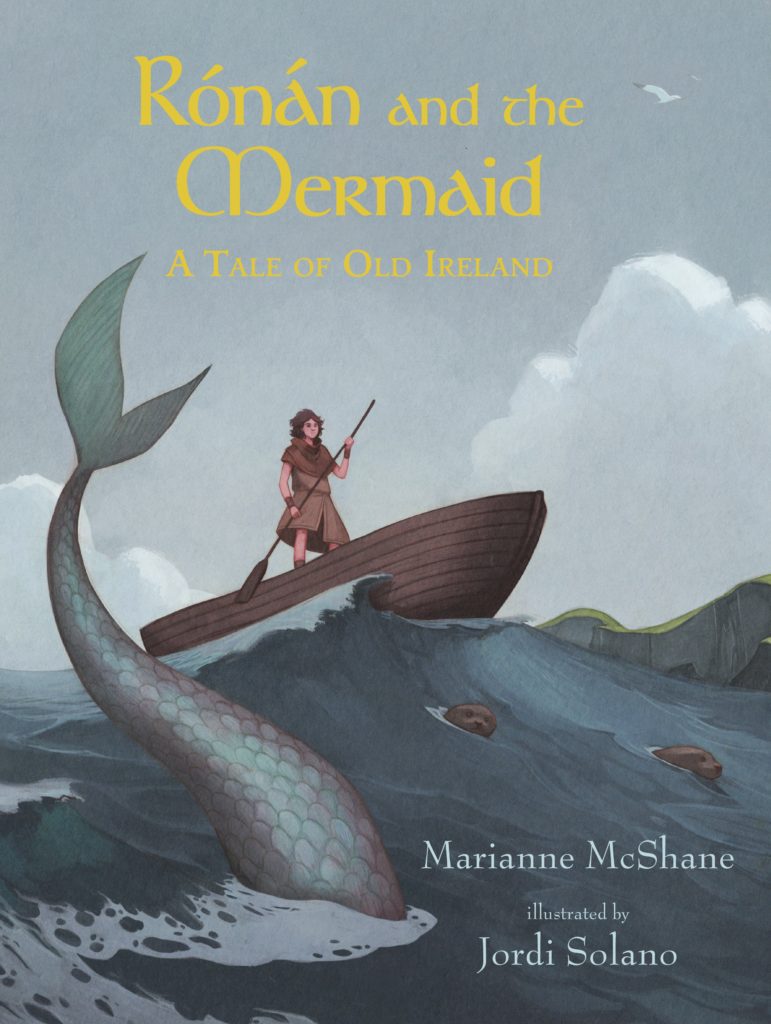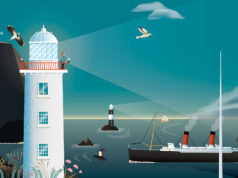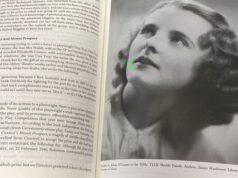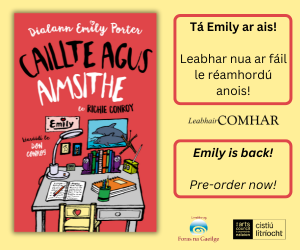Marianne McShane explains her motivation to put pen to paper and get her Irish folk tales written down

For over 30 years I have been telling Irish folk and wonder tales, but it was only five years ago that I began to write my first story, Rónán and the Mermaid: a tale of old Ireland, about a young foundling boy and a mermaid saint.
For most of my adult life I lived and worked in Connecticut. Telling Irish folk tales to American audiences was how I kept homesickness at bay. I loved the rich imagination and the gorgeous language of these tales. I loved how they carried me back home. And I was overjoyed and astounded one day when I came upon a reference to Líban, the mermaid saint. For Líbán had come ashore in my own town of Bangor and had been baptised there by Saint Comgall, founder of the great abbey. Here was a legend from home, and yet I had never heard anyone in Bangor mention it. Had it been forgotten? I was determined to find out all that I could.
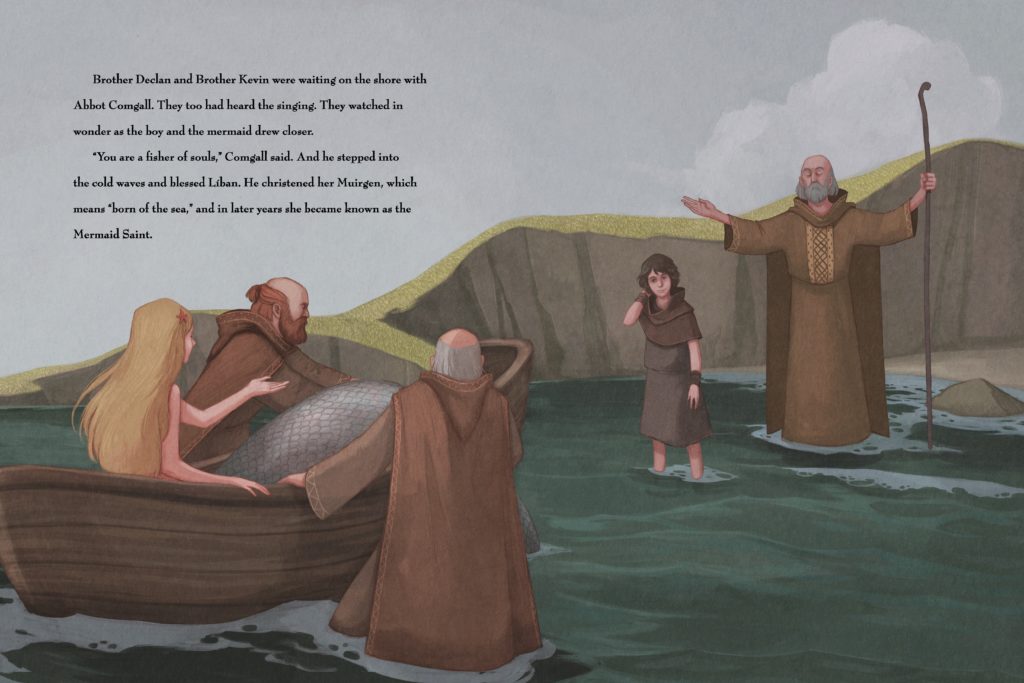
Líban’s story dates from sixth-century Ireland and has been preserved in early writings and in the oral tradition of storytelling, scéalaíocht. The Annals of the Four Masters tells of a wondrous happening in 558: ‘In this year was taken the mermaid, Líban … in the net of Beoan, son of Inli, the fisherman of Comghall of Beannchair.’ The Annals also record that Líban was baptised by Comgall and given the name Muirgen, which means ‘born of the sea’.
Líban was the daughter of Eochaidh, king of Ulster. She and her pet dog were the only survivors when Eochaidh’s palace and lands were flooded. In her loneliness she prayed to the goddess Danu asking to be turned into a salmon so she might swim with the fish of the sea for company. But Danu only half granted her wish. The little dog became an otter, and Líban was transformed into a mermaid. For three hundred years she was adrift in the sea until she was brought ashore to Comgall.
Líban’s story took hold of my imagination and wouldn’t let go. I thought about her adrift on the lonesome seas. I wondered what might have compelled her to come ashore after those long three hundred years. And gradually the kernel of a story formed in my mind—a story of a young foundling boy, whose life she saved, and who finally coaxed her back from the sea. That kernel became Rónán and the Mermaid: a tale of old Ireland, published this April by Walker Books.
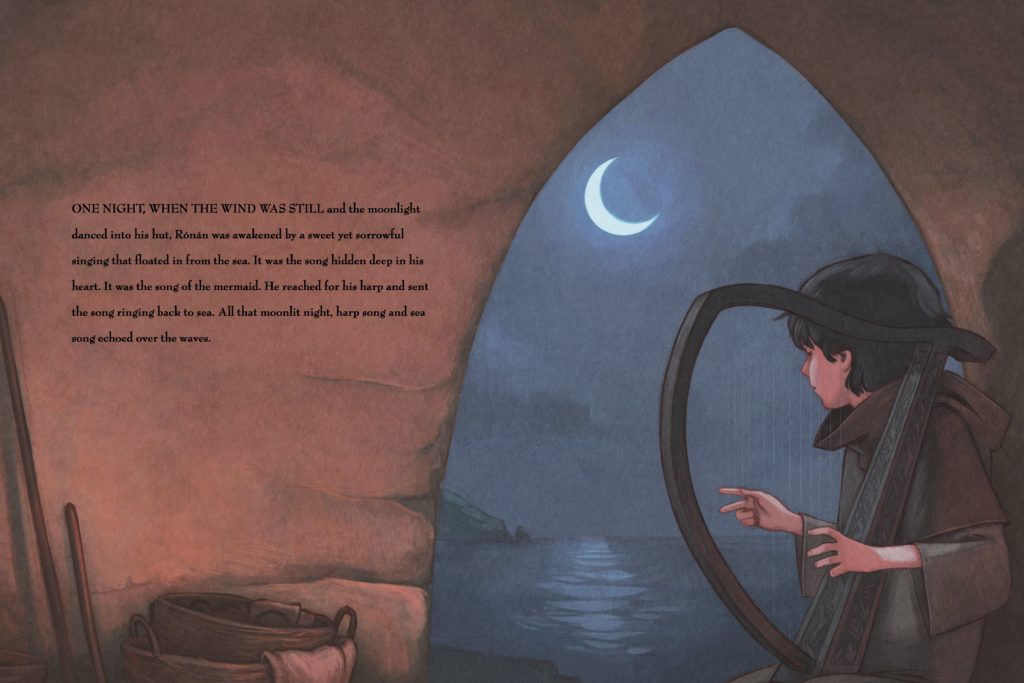
My re-imagining of the legend begins with Brother Declan out looking for driftwood along the shore. He finds a boy washed up on the wet sands amid a circle of seals. At first the boy can barely move or speak. But, when he regains his strength, he tells of being brought ashore by a lady with long golden hair, who sang him to safety and gave him a silver ring. Declan knows the story of the mermaid who has wandered the coast for three hundred years. He wonders if it was she who saved the boy.
It was indeed the mermaid who saved the boy. Rónán is haunted by the mermaid’s song and is never fully at rest until he hears it again. And when he does hear it, one moonlit night, he takes his harp and plays the melody back to her over the waves.
You can still find memories of Líban in Bangor today. The ancient abbey is long gone, but if you come to our town you will find a new abbey, where Comgall is honoured still. A handmade quilt hangs on the transept wall and in one of the squares you will see the mermaid. There she floats forever on the crest of a sea wave.
***
Marianne McShane lives in Bangor, Co. Down. Rónán and the Mermaid is her first book for children.









